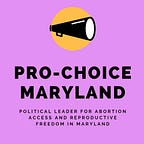Undermining Roe v. Wade in 2021
by Sofia Soraci
Although it is only July, 2021 will go on record as the worst legislative year for abortion rights since the U.S. Supreme Court ruling Roe v. Wade. Within the past 7 months, 90 state restrictions have been enacted. In a few months, the constitutional right to an abortion will once again face a major challenge at the Supreme Court level. This fall, we will learn more from the oral argument of Dobbs v. Mississippi , which calls into question the constitutionality of a pre-viability abortion ban, directly undermining the decision outlined in Roe.
Antiabortion state legislation is gaining unprecedented steam. The seemingly endless bans and restrictions imposed upon an integral form of health care begs the following question: why is Roe v. Wade so easily undermined? In 1973, the landmark case legalized abortion under the right to privacy, which is cited in the Due Process Clause of the Fourteenth Amendment. However, the strength of this justification has been questioned by many, including the late reproductive freedom champion Ruth Bader Ginsburg.
What is the alternative?
The Equal Protection Clause of the Fourteenth Amendment, which provides that no person will be denied equal protection of the law, has emerged as the primary counter legal framework to constitutionalize abortion rights. Those in favor of this justification argue that, rather than isolating women’s rights within the private sphere, the Equal Protection Clause would account for gender as a social position that is situated within an intersectional hierarchy. Antichoice legislation denies individuals their right to full bodily autonomy, and these attacks disproportionately impact certain groups. As a result, some scholars and policy makers argue that the discriminatory enforcement of abortion restrictions undeniably violates the Equal Protection Clause. Supporters of the framework suggest that, theoretically, harmful pieces of legislation such as the Hyde Amendment never would have passed under this alternative constitutional approach.
How could attacks on abortion access have fared differently?
The Hyde Amendment prohibits federal funding for abortion except in cases of “rape, incest, or preserving the life of the mother”. The law perpetuates cycles of poverty and unsafe abortion practices by denying health care to, and ultimately punishing, low-income individuals. The Hyde Amendment obstructs equal protection, and therefore should be considered a violation of the Equal Protection Clause, because it favors the social role of motherhood among, and severely disadvantages, those who cannot afford an abortion. Ruth Bader Ginsburg believed that public assistance for abortions would have been achieved “if the Court had acknowledged a women’s equality aspect [and] not simply a patient-physician autonomy constitutional dimension”. Similarly, state-specific restrictions such as consent laws, which target minors, may have been rejected under a legal framework that was rooted in equality rather than privacy. Adolescents are generally denied autonomy under the right to privacy; however, under the Equal Protection Clause, restrictions that inflict gender-based consequences should be rendered unconstitutional. For example, in 2000, Planned Parenthood v. Farmer challenged a parental notification law in the state of New Jersey and nullified the restriction because it infringed upon a “young woman’s fundamental right to an abortion and [was] unconstitutional under the equal protection principles set forth in [their] State Constitution”. The Court particularly emphasized the unconstitutionality of the differential treatment that occurs when a state denies autonomy to a pregnant minor who wants to terminate her pregnancy but grants full autonomy to that same adolescent in the prenatal and child birthing process. Overall, abortion bans and restrictions represent a form of coercion that impacts groups disproportionately and arbitrarily, denying certain individuals their right to adequate health care and thus equal protection of the law.
Why does this matter?
More than 40 years after Roe v. Wade, the fight for individuals’ fundamental right to abortion care has never been more important. Examining its legal grounding is essential because, as demonstrated by the Hyde Amendment, TRAP laws, and consent laws, abortion is only a right in theory. As we challenge the state anti-abortion legislation of 2021 and prepare for the potential impact of Dobbs v. Mississippi, it is crucial to remember that the constitutional justification for abortion influences not only tangible outcomes for health care but also societal perceptions of gender roles. In order to protect and advance reproductive rights, it must be socially and legally understood that access to abortion is inextricably linked to full citizenship.
